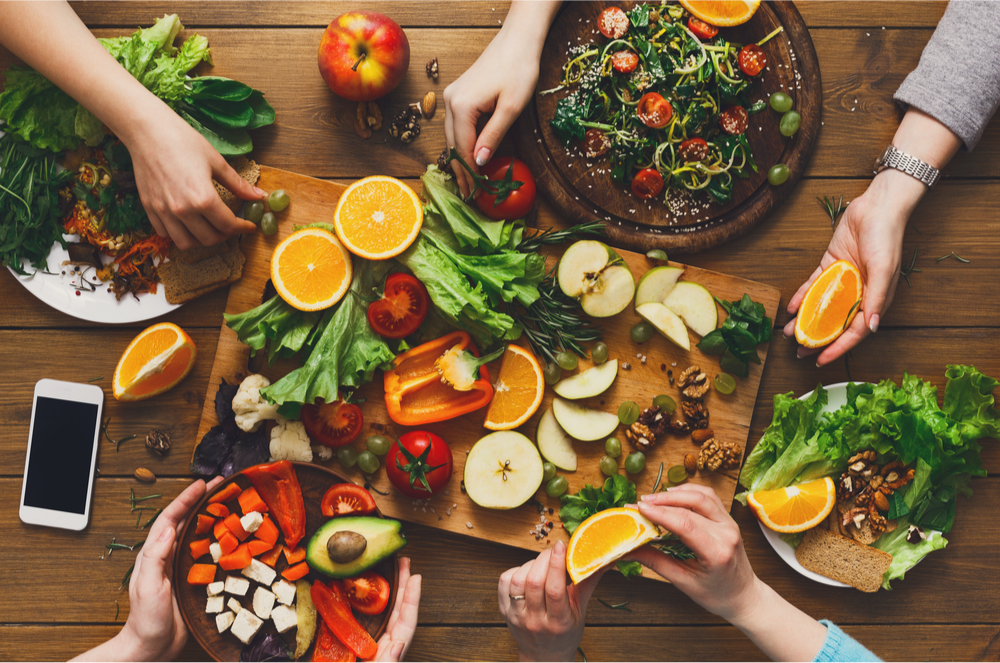Confused by all the conflicting diet advice out there? These simple tips show you how to plan, enjoy, and stick to a healthy eating.
What food is good?
Eating healthy doesn’t mean sticking to a diet, being disproportionately thin, or depriving yourself of the foods you love. Instead, it’s about feeling good, having more energy, improving your health and improving your mood.
A healthy diet doesn’t have to be a strict diet. If you feel strongly about conflicting diet and nutrition advice, you’re not alone. It seems that there are experts who say that certain foods are good for you while there seem to be experts who say exactly the opposite. In general, the cornerstone of a healthy diet is to eat as much whole food as possible instead of processed foods. Eating foods that are as close as possible to how nature created them can make a big difference in how you think, look and feel.
These simple tips will help you learn how to declutter and create and maintain delicious, varied and nutritious meals that are good for your mind and body.
The basics of good nutrition
Some extreme diets suggest otherwise, maintaining good health requires a balance of protein, fat, carbohydrates, fiber, vitamins and minerals in a variety of food choices.
Protein keeps you awake and gives you the energy to keep going while supporting your mood and cognitive function. Too much protein is bad for people with kidney disease, but new research shows that we need more protein, especially as we age, to ensure we get all the essential protein our bodies need from the body. daily source of plant-based protein.
obesity. Not all fats are the same. Unhealthy fats spoil your diet and increase your risk of developing certain diseases, while good fats protect your brain and heart. In fact, healthy fats like omega-3 are essential for physical and mental health.
It’s a thread. Eating foods rich in fiber (grains, fruits, vegetables, nuts, and beans) can help you maintain a healthy lifestyle and reduce your risk of heart disease, stroke, and diabetes. It can also improve your appearance and help you lose weight.
Calcium is a source. In addition to causing osteoporosis, not getting enough calcium in your diet can also cause anxiety, depression and sleep problems.
Carbohydrates are one of the main sources of energy in the body. But most should come from refined complex carbohydrates (vegetables, fruits, nuts) rather than sugar or refined carbohydrates.
Indulge in good food
Changing to a better diet doesn’t have to be all or nothing. It doesn’t have to be perfect. Usually just cheating or skipping a new meal plan.
By making your goals smaller, you can accomplish more in the long run without depriving yourself or being overwhelmed by your massive diet overhaul. Once small changes become a habit, you can continue to add healthy options.
Ready for success
Keep it simple for success. Eating healthy doesn’t have to be complicated, for example, instead of worrying about counting calories, think of food in terms of color, variety and freshness. Avoid packaged and processed foods.
Prepare more meals When you prepare more meals at home, you have more control over what you eat and what goes into your food. Avoiding these healthy fats can lead to fatigue. Edema and anxiety Worsening of depression, anxiety and stress.
Make the right changes by reducing healthy foods in your diet. It is important to replace them with other healthy foods. But replacing animal fats with refined carbohydrates (for example, using donuts instead of bacon for breakfast) won’t reduce your risk of heart disease or improve your condition.
Read these signs. The ingredients also say it’s good, so it’s important to know what’s in your food.
Pay attention to how you feel after eating. It promotes new healthy habits and tastes. Eating junk food makes you sick, nauseous and low in energy faster.
Drink plenty of water, water removes waste and toxins from our system, but most people live dehydrated lives. This can lead to fatigue, lack of energy and headaches, so staying hydrated can help you make healthier food choices.

Moderation: The Key to Healthy Eating
What is moderation? Basically, it just means that you eat what your body needs. For most of us, moderation means eating less than we currently do. However, this does not mean that you should not eat your favorite foods, for example, eating bacon for breakfast once a week may be too much if you have a large lunch and dinner. But not when you’re eating a box of bagels and pizza sausage.
When limiting certain foods, try not to consider certain foods “too much.” Cutting back on healthy foods can help you stop craving those foods or feeling like you’re overeating.
expect smaller portions to have gotten bigger when eating out lately. Choose snacks instead of reading. Share a plate with friends and don’t overeat, eating at home should be like a deck of cards and even half a cup of mashed potatoes, rice or pasta should be the size of a traditional hot bowl. can trick the brain into thinking it’s a big task. If you don’t feel full after a meal, add some green leaf or fruit to your meal.
Take it easy Instead of eating at a meeting or on the way to pick up your kids, think of food as food slowly and stop before you’re full.
Eat with others as much as possible. Eating alone, especially in front of the TV or computer often leads to overeating.
Reduce food at home Be careful with your food. Set aside if you’re ready to treat yourself to a special meal while staying within healthy options. Let’s begin.
Check your eating habits. We don’t always eat to refuel. Many of us turn to food to relieve stress or cope with negative emotions such as sadness, loneliness, or fatigue, but by learning to manage stress and emotions, we can happily take control of our eating and mood.











